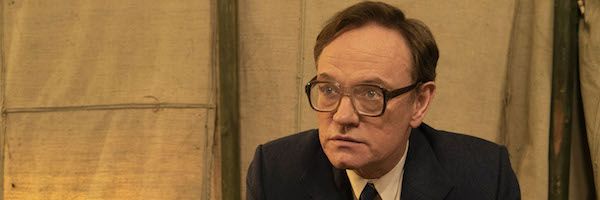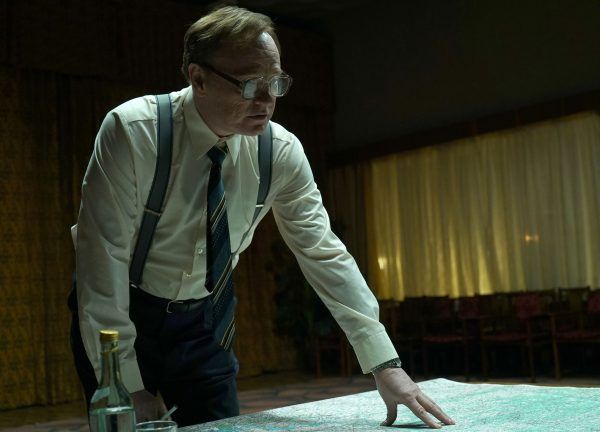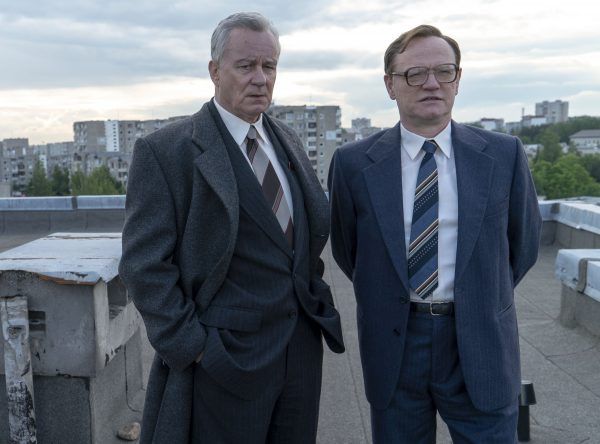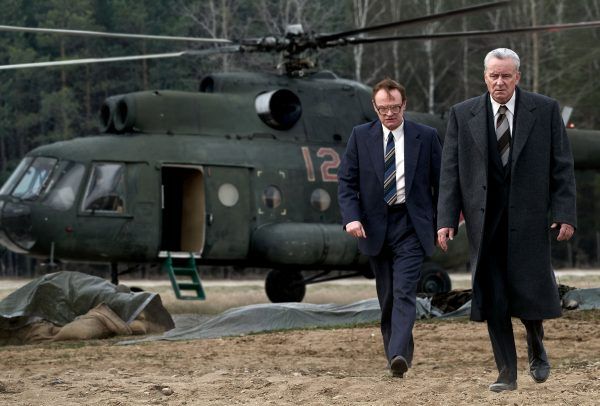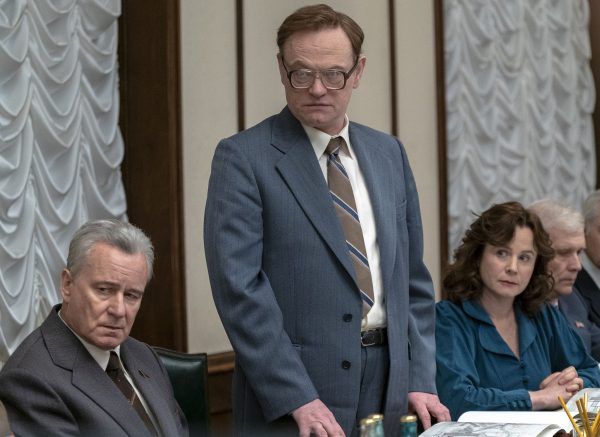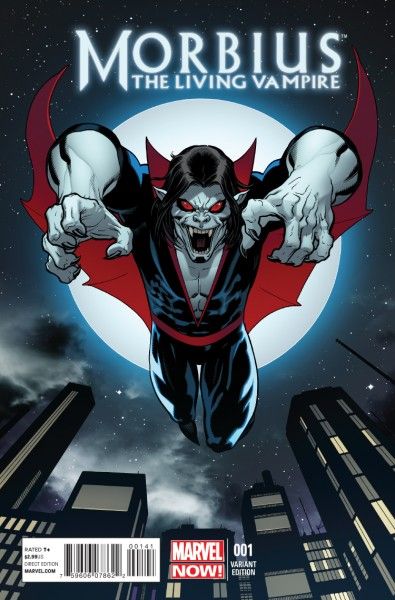From creator/writer Craig Mazin and director Johan Renck, the five-part HBO mini-series Chernobyl explores how the 1986 nuclear accident become one of the worst human-made catastrophes in history. After the Chernobyl Nuclear Power Plant in Ukraine, Soviet Union suffered a massive explosion that released radioactive material across Ukraine, Belarus and Russia, and as far as Scandinavia and western Europe, countless brave men and women sacrificed their own lives, both knowingly and unknowingly, in an attempt to save Europe from unimaginable disaster.
During this 1-on-1 phone interview with Collider, actor Jared Harris (who plays leading Soviet nuclear physicist Valery Legasov, one of the first to truly grasp the scope of the disaster) talked about why he wanted to be a part of telling the story of Chernobyl, what made it such a gripping page-turner, how what he learned changed his perspective on what really happened, the experience of shooting in Lithuania and being in a real power plant, the human cost of what happened, and the role that truth and lies played in the disaster. He also talked about what gets him excited about a script and character, why he wanted to be a part of Morbius with director Daniel Espinosa, and growing up as a fan of comic books.
Collider: I’ve seen this mini-series and there are so many levels to it, from horror to courtroom drama to just a completely personal human story.
JARED HARRIS: It cleverly touches on several genres. That was all, of course, completely conscious on (writer) Craig Mazin’s part. I wasn’t aware of transiting from a disaster story to a political thriller to a courtroom drama, necessarily. You don’t step back that far from it to see it in those terms. When you’re reading the scripts, you appreciate that’s where it’s going, but that stuff doesn’t mean anything when you’re acting a scene. You don’t act it differently because your responsibility is the same, no matter what sort of genre you’re in.
When I spoke to Stellan Skarsgard, he talked about how impressed he was with your courtroom scenes. With that, did you feel like there was an extra level of preparation, especially doing so much dialogue?
HARRIS: There has to be. That came quite early in the schedule, and you need to be on top of your material and your responsibility. Because of professional pride, you want it to go well. There were different ways that one could have done that scene and told that part of the story, but (director) Johan [Renck] and Craig didn’t want it to feel as though this person was accomplished, in that scenario. When he’s describing the technical matters, then he’s in a comfort zone, but in terms of that room itself, he’s not an advocate, he’s not a lawyer, and he’s not a prosecutor. He’s an expert witness. They never wanted him to feel as though that was an environment that he was comfortable in. Whereas you could have done a version where he was banging the table and going, “I want the truth!” “You can’t handle the truth!”
When this came your way and you read the script, what was it about this project that made you want to sign on?
HARRIS: The great story. It was a page-turner, that was a gripping story. The stakes couldn’t be higher. And it was also a wonderful testament to the heroic sacrifices of people whose names history doesn’t record, hasn’t recorded, and doesn’t remember, even though they should be remembered. They should be validated for the sacrifices that they made, and when I say that, I’m not thinking specifically of the main characters. I’m thinking of the divers who went in there, the helicopter pilots who flew over the reactors, the miners, and the people that went up on to the roof to clear the roofs, so they could build the container structures. They did it, knowing what they were doing. The firemen were kept in the dark. They were never trained for how to approach a fire where the core had been exposed, so they thought they were just dealing with a conventional fire, and that’s a shocking situation for them to have been put into. They weren’t given the information, at all.
People have heard of Chernobyl and they think they know what happened, but how has having done this changed your perspective on what occurred?
HARRIS: Well, on the one hand, it’s made me hyper-vigilant about how dangerous radiation is, and on the other hand, it’s somewhat mitigated because when you’re trying to understand some of the levels of exposure, you realize that you’re actually exposed to more radiation, every time you’re on a transatlantic flight. They just don’t tell you that. The other thing about it is just how bad it could have gone and how close we came. It was that classic cutting the wire with 0.1 seconds to go. We were very, very close to some catastrophic results, from the effects of it. I didn’t know about that. I didn’t know anything about Legasov. I had never heard his name, so that was extremely educational. I was deeply moved by the sacrifices that people made, and they made them for and on the behalf of people that would never know.
The end of the film, when you learn so much more about what happened, beyond the story that’s being told, makes everything so tragic, and it’s sad to know that Legasov’s life ended in suicide, as a step to force people to pay attention to what he was saying. After having spent so much time with him for this, how would you like to see him remembered?
HARRIS: The act that he takes at the end of his life is a statement. You have to remember that he was dying, and it was a very courageous thing that he did, in the sense that he decided to forego the last few years that he would have left, to try to instigate a release of the information and a commitment towards fixing the problems, so that it didn’t happen again. The Soviets said that they were going to erase him from history, but he deserves to be recognized for the role that he played, as do all of those characters. There are a lot of people who made sacrifices, and it would be quite hard to figure out what their names were, in terms of all of the people that were up on the roof, and who all of the miners were.
It sounds like the majority of this was shot in Lithuania. How was your experience there?
HARRIS: I loved it. I really enjoyed it. We were in Vilnius, for most of the time. It’s a beautiful city, and they were very, very friendly. They were really welcoming, and they have good facilities and hard working crews. I recommend Vilnius, if you’re interested in traveling. It’s a lovely place to be. Get there before the British stag parties discover it because it’s not fun, when those guys show up.
You also got to shoot in a real nuclear power plant.
HARRIS: We did.
What does that feel like?
HARRIS: You’re immediately impressed with the reality and the seriousness of it. You’re under armed escort, everywhere you go. The security was extremely tight. It wasn’t unnerving, but you are aware, the whole time that you’re there, that on the other side of this wall, there’s ten feet of concrete, and even though the nuclear reactor is being decommissioned, it actually stakes decades to successfully decommission it. Just because they’ve switched it off doesn’t mean all of the material is not there. It’s a big institutional, functional building. They are fairly nondescript, with huge gray lots of metal tubes, running all over the place. There are a couple of windows, but not many. There’s barbed wire everywhere, and security guys with machine guns are watching your every move.
There’s a scene in which everybody around you is naked, except for their shoes.
HARRIS: Yes.
What was that scene like to shoot, in the middle of such heavy subject matter? Did it lead to any much-needed levity?
HARRIS: Obviously, it was funny. I found that to be one of the lighter moments of telling the Legasov story. What I enjoyed with that was that he was trying to figure out where he could look. He was making a real point of staring at the person’s eyes, and not looking elsewhere, because he was embarrassed and he didn’t know where else to look. There was a humorous element, at that point, which every story needs. The more dramatic a story, the more the necessity to take a left turn into humor. Shakespeare does that. It’s hilarious, and you always need that respite before you dive back into it.
It’s clear that we’ll never actually know the human cost of what happened, especially when they estimate that it could be anywhere from 4,000 to 93,000 deaths.
HARRIS: Yes, and it’s still going on. There are children being born in Belarus and the Ukraine, right now, who have been genetically malformed by the radiation, and it will affect their lives. So, it’s still happening, every day. The cost is still affecting people, every day.
Do you feel, then, that the most important thing for people to take away from this is the role that truth and lies can play in the outcome of something like this?
HARRIS: Yeah, absolutely. And also, the thing that struck me about that topic is that the Soviet people have become cynical. Their expectation of being able to get the treat from their government and to be able to hold their government accountable has disappeared, and they’ve become cynical about it. The second that happens, you’ve got a runaway state that’s not honorable to anybody. That’s very, very dangerous.
You’re also working with director Daniel Espinosa on Morbius. I think he’s a really interesting filmmaker, so I’m very curious about what he’ll bring to that story. What was it that drew you to that project?
HARRIS: I knew that I would get to work with Matt [Smith] again, so I was excited about that. We’ve become friends. We became friends on The Crown, and we stayed in touch, so that seemed like it would be fun. And then, I’m a fan of those movies. I grew up reading comic books, so I enjoy watching those films, and it seemed like it would be fun to be a part of it. I can’t say too much about it because, as you know, they are extremely strict about keeping a lid on everything, even naming the characters’ names.
How would you describe what Daniel Espinosa is bringing to that world, as a director?
HARRIS: I haven’t been on it that much so far, but a director’s job is to figure out a way of telling a story to an audience where you can still surprise them and it’s still fresh. That seems possible, especially being that they have a fantastic element. You need to be able to, on the one hand, have it be grounded in an emotional reality, and at the same time, you need to be able to have the license to go to extremes of the imagination and fantasy. The director is the person who’s sitting there watching it, and I’m walking that line, if you like. They’re always aware of whether or not it feels real, and whether or not it feels right, for the tone of the story.
Had you been familiar with Morbius in the comics, or is this your introduction to that character?
HARRIS: Yeah, of course, I had. I used to have stacks and stacks and stacks of comics, when I was younger. You’re too young, but back in the day, certainly when we would be on holiday, there was no television. VHS hadn’t been invented yet. You had to entertain yourselves, and when you were a kid who was nine years old, you read and re-read comics. That was one of the ways you did it. You played games and cards, and you swam, and you kicked the ball around, but there were times when the adults wanted their own time. They didn’t want to talk to you or play with you, so you’d just go off and entertain yourself, and you’d re-read your stack of comics.
At this point, in your life and career, what do you look for in a project? What gets you excited about a script and a character?
HARRIS: It’s simple, in the sense of, are you being pulled along by the story? Do you want to turn the page and find out what happens next, on the next page? At that moment, you are in the same situation that the audience is going to be in, and if you’re finding it difficult to flip the page, then you know that, if you’re going to say yes to it, then you’ve got to solve that problem and find a way to grab the audience. If that’s already there on the page, and you’re being swept along by the story, then there’s a pretty good chance that the audience is going to respond the same way. It’s about storytelling. You’re trying to tell a story and see if you can grab their attention and imagination. Obviously, who’s directing it is important, who’s written it is important, and who you are acting with is important, and they can become the sole reason to say yes to something. If Steven Spielberg calls to say, “I want you to play a part,” you’re going to say yes. If you’re acting opposite Daniel Day-Lewis or Anthony Hopkins, or someone like that, you’re going to say yes. It doesn’t really matter what your part is. So, there’s a combination of things. But your first contact with something is that script, and what the writer has imagined and come up with.
Chernobyl airs on Monday nights on HBO.

